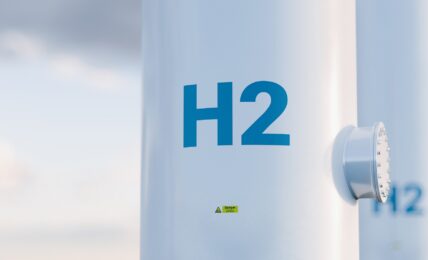Integrated oil, gas, and chemicals company OMV announced today the launch of its “Strategy 2030”, outlining plans to shift from oil & gas production to renewable fuels and circular solutions and become a net zero emissions company by 2050.
As part of its new strategy, OMV aims to cut its oil and gas production by around 20% by 2030 and to stop oil and gas production for energy use by 2050.
Alfred Stern, OMV CEO and Chairman of the Executive Board, said:
“If we want to maintain and expand living standards around the world while ensuring the survival of our society, we must move to a more sustainable way of doing business. For this reason, OMV will re-invent essentials for sustainable living.”
The company’s 2050 net zero target includes scope 1, 2, and 3 emissions, encompassing emissions both within its direct control, as well as across its upstream and downstream value chain. Under its new strategy, OMV is aiming for a 30% emissions reduction targets in operations and a 20% reduction target in the product portfolio for 2030.
OMV stated that the key levers to achieving these targets include portfolio upgrades, enhancing efficiency, increasing renewable energy purchases, reducing throughput and sales of fossil refinery products, and increasing the share of recycled and sustainable feedstocks.
OMV’s Exploration & Production business will focus on reducing fossil fuels and developing sustainable energy solutions. Crude oil production will be reduced by around 30% and natural gas production by around 15% by 2030. Investments in oil and gas production will continue until 2026, with a focus on gas projects, after which it will decrease significantly.
Additionally, OMV plans to invest around €5 billion in the development of low-carbon businesses, including geothermal energy and carbon capture and storage (CCS) to reduce its GHG emissions, and it plans to expand its solar and wind generation for captive use to at least 1 TWh and explore gas and hydrogen storage solutions opportunities. The company also stated that routine flaring and venting of associated gas from oil production will be phased out by 2030.
Johann Pleininger, Deputy CEO and Member of the Executive Board responsible for Exploration & Production said:
“Leveraging our E&P assets, capacity, and know-how, we will build and expand the Low Carbon Business. Our overarching goal is to provide cash and sustainable energy solutions to support the transformation.”
OMV’s Refining & Marketing business will aim to become a leading producer of sustainable fuels and chemicals feedstock in Europe. The company plans to increase production of sustainable fuels and chemical feedstock to 1.5 million metric tons per year by 2030, with sustainable aviation fuels (SAFs) accounting for almost half of the volumes. Additionally, OMV is planning to invest more than €400 million by 2030 to offer more than 2,000 e-charging points, and increase sales of SAFs to more than 700,000 metric tons.
Martijn van Koten, Member of the Executive Board responsible for Refining, said:
“In Refining, OMV is turning away from fossil feedstock to become a leading, innovative producer of sustainable fuels and chemical feedstock in Europe. This will drive and deepen the integration with our Chemicals & Materials business.”
The company also stated that its Chemicals & Materials business will be further strengthened, expanded, and diversified to become its key growth driver, in line with growing global demand for virgin polyolefins. Additionally, OMV group also intends to take a leading position in the field of renewable and circular economy solutions.
Stern, added:
“Chemicals & Materials will not only be our growth engine but balance sustainability, risk and returns and strengthen our resilience against market dynamics.”
The post OMV Launches Strategy to Shift from Oil & Gas to Renewable Fuels & Circular Solutions appeared first on ESG Today.


